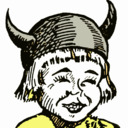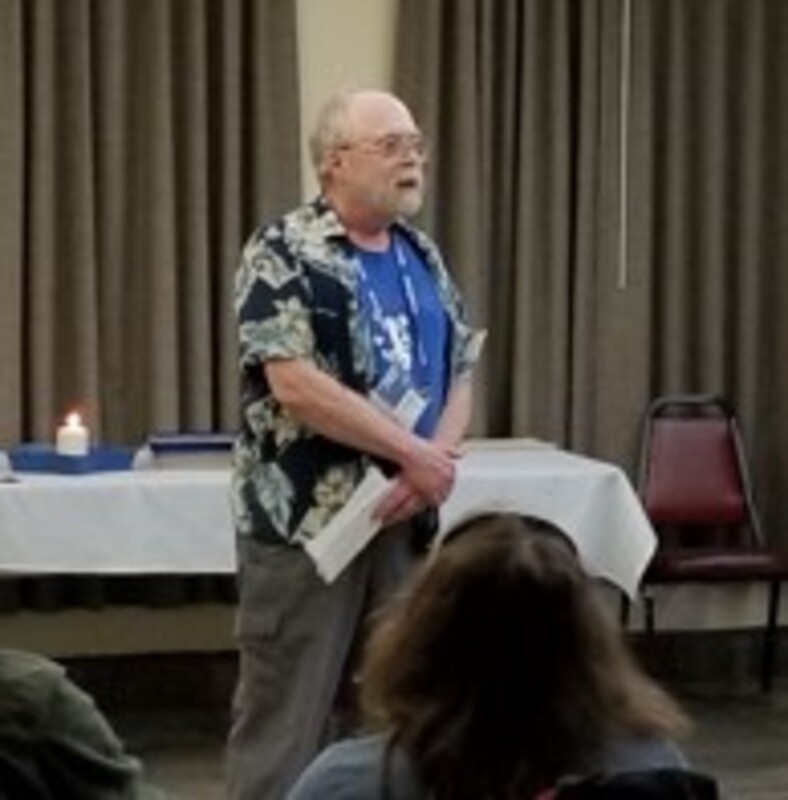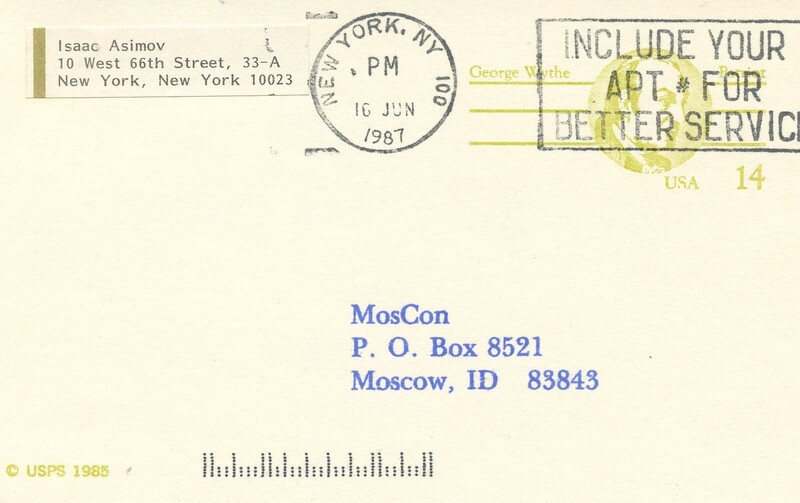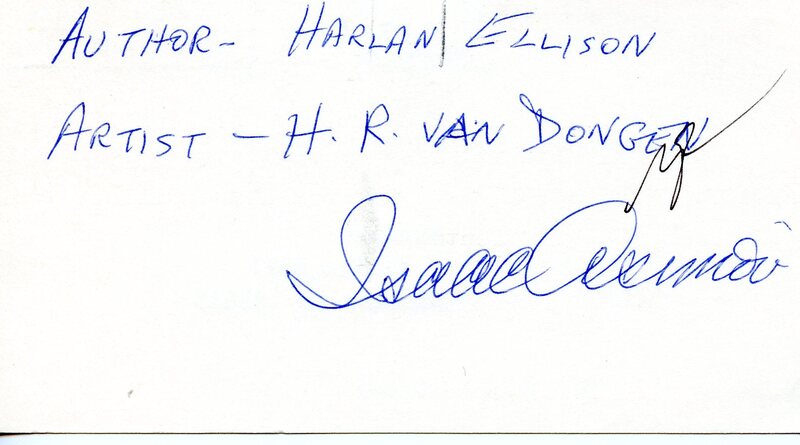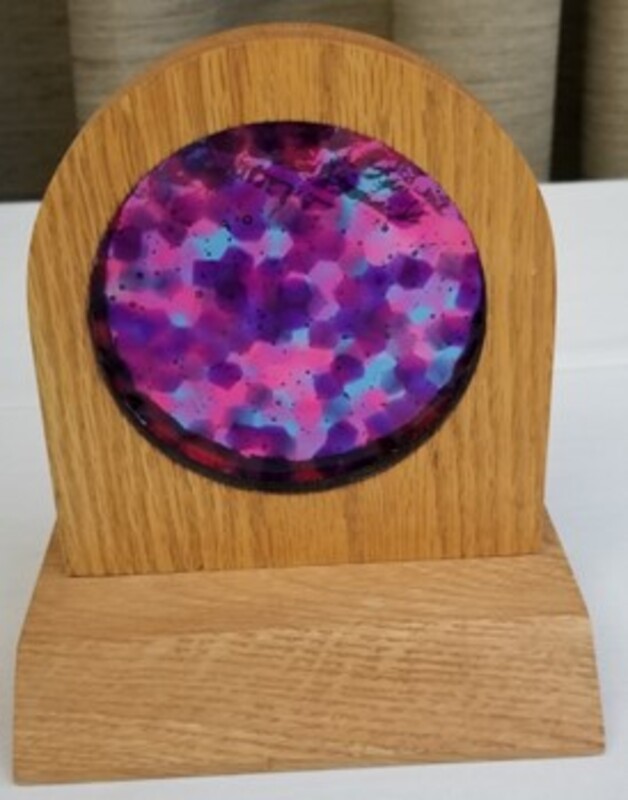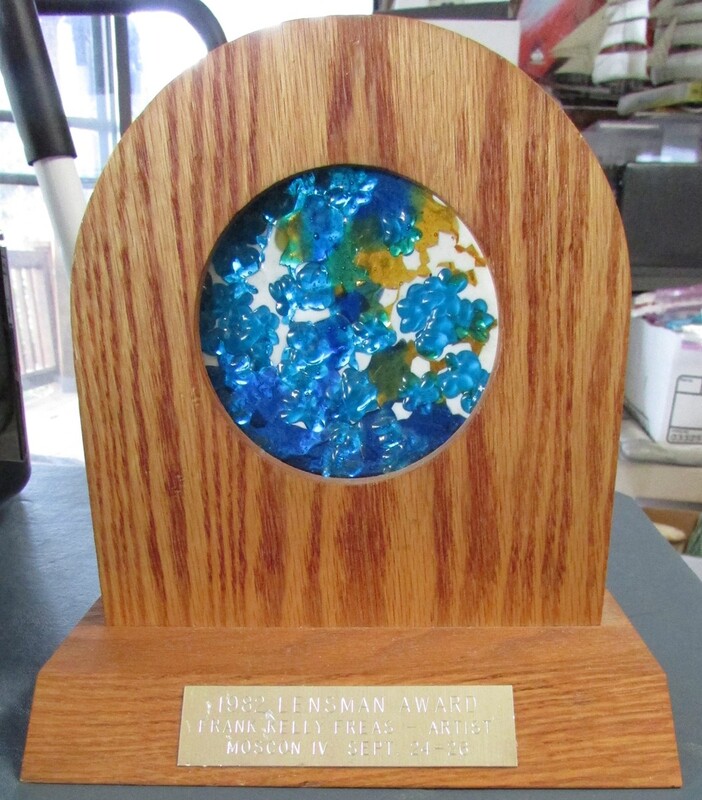Post written by Dusty Fleener, 2022 Gary E. and Carolyn J. Strong Fellow in Special Collections and Archives.
In working with fandom-related topics, one may learn new terms and often it helps to have a cheat sheet or glossary. Internet access and a good Google search in the 21st century can demystify these in moments whereas in the past one had to have a fen friend serve as translator for the mundane or become part of the circles where such were spoken. For convenience in what one might find in the collection when visiting the University of Idaho, here is a sampling:
- APA: Amateur Press Association. A means of distributing fanzines and apazines to a group of people. Usually distributed to mailing lists via traditional non-electronic mail, or “snail mail.”
- BNF: Big Name Fan. Someone in the fandom that everyone seems to know or know of and are often “fan guest of honor” at conventions.
- CON: Convention. These are focused on fandoms such as anime, comic books, fantasy, and science fiction. These can range in scale from
- DEAD DOG PARTY/DEAD COW PARTY: A traditional informal gathering held on the final evening of a multi-day convention, following a convention’s closing ceremonies. Remaining attendees, convention committee staff, and convention volunteers at the event location use up remaining perishable supplies, and their last amounts of energy, to celebrate a successful convention. Most often it is held at the convention hotel but can be hosted at an alternate location.
- FAN: Short for “fanatic.” Usually meaning devoted individuals to a particular diversion (media, sports, and so on). While the term can have pejorative connotations outside of fandom, within fandom communities itself it usually refers to those individuals who actively participate in science fiction and fantasy fandom activities or interests and interact with other fans (or fen) of shared interests.
- FANAC: A portmanteau of “fan” and “activity.” It covers running fandom conventions, writing in fanzines, participating in club meetings, participating in APAs, composing filk, or any other activities conducted with fellow fans.
- FANART: A portmanteau of “fan” and “art.” Visual media created by fans.
- FANCON: A fan convention, a portmanteau of “fan” and “convention.” An event where fen of media or special topics can gather for events, meeting famous personalities, and one another. These are traditionally self-organized by fen themselves or by non-profit entities and can be multi-day events held at a hotel and traditionally focus on science fiction and fantasy as literature or its derivatives. A professionally run convention, or PROCON, may be a for-profit commercial event catering to fen and have a higher cost. Conventions will usually have multi-track programming and include an art show, a space for vendors to sell their wares, a convention suite or hospitality area, a dance venue, a cosplay or masquerade event, and media programming for film and video or table-top gaming.
- FANFICTION: A portmanteau of “fan” and “fiction.” Also known as “fanfic” or “fic.” These are written media created by fans.
- FANNISH: A term describing something related to fandom.
- FANON: A portmanteau of “fan” and “canon.” These are theories created by fans based on “canon” materials that are not “canonically fact” in the originating media but can fit within them.
- FANZINE: A portmanteau of “fan” and “magazine.” These are created by fans for the amusement of other fen and were initially the main form of communication between them. Often fanzines will contain a range of content that includes personal essays, advertisements for conventions, items which are of interest to the fanzine editor(s) and so on. Due to their format of production and resources available to editors, fanzines often have irregular publishing schedules and small runs of each issue.
- FEN: The plural form of fan.
- FILK: Fan-written or fan-sung songs about science fiction or fannish themes. Songs are referred to as “filksongs,” events where filksongs are sung are called “fliksings” and performers are known as “filkers.” Filksongs may be parodies or original works.
- GOPHER/GOFER: A slang term derived from “go for this” or “go for that,” and used for a junior convention employee or a junior convention volunteer who assists in the running of a fan convention. Those volunteering for this role often exchanges hours of service for a membership refund to the convention or other perks offered specifically to entice volunteer recruitment at fancons. Serving as a gopher is how most individuals get involved in running conventions and working toward higher positions of responsibility.
- PEACE-BOND/PEACE-BONDING: A “peace-bond” is a lock, tie, or high-visibility mark attached to a costume prop or item worn as a piece of masquerade outfit worn by a fan at a convention for anything that might look like a real weapon (realistic prop firearm in a holster, a faux sword or theatre grade metal blade for stage acting in a scabbard, etc.) and secures it from being drawn, brandished, or used by the convention goer in public spaces. This prevents costume or masquerade items from being misinterpreted as genuine weapons or a threat to convention goers or members of the public who may encounter the bearer. Often this is part of an event’s “weapons policy” and applies to anything that looks like a weapon.
- PROCON: A portmanteau of “professional” and “convention.” These are often for-profit conventions put on for fen and generally focus more on visual media fandom, invite high profile celebrities, and often have programming tracks oriented to be multi-genre fandom in nature.
The man who donated these materials to help preserve PESFA and MosCon for future fandom history, Michael Finkbiner, has been involved in Canadian and American fandom since the 1970s. He has been recognized as a fan guest of honor twice (V-Con 14 and MisCon 2), and still attends fan conventions today. Michael and other PESFA members helped get MosCon moved to non-profit status following the early conventions and continued to contribute to its continued success over the years, even when he was not serving on the convention’s committee. Michael has been active in encouraging PESFA and MosCon members to donate their original materials to the UI Special Collections and Archives.
One of the highlights for me working with the collection was learning more about a special recognition that the Palouse Empire Science Fiction Association awarded through MosCon to its guests of honor – the Second Stage Lensman Award. A great moment of excitement came in the last box of items in the collection – the ballots returned to the convention committee for awarding of the Second Stage Lensman award. Among the many professional artists and writers in the science fiction and fantasy community of creators that the PESFA group had reached out to, Isaac Asimov’s returned ballot and signature stood out. He voted for New Wave speculative fiction author Harlan Ellison (May 27, 1934 – June 28, 2018) in the author category, and H.R. van Dongen (August 20, 1920 – February 27, 2010) in the artist category.
While there was no actual Second Stage Lensman Award in the material donated by Mike Finkbiner to the University of Idaho’s Special Collections and Archives, he did bring one from his collection to the talk he gave at the 2019 MosCon Revival as an example of what was given by the convention committee. A photograph is included in this blog post that I took, as well as an image of the award given to science fiction artist Kelly Freas (August 27, 1922 – January 2, 2005). The latter is currently being auctioned on eBay: https://perma.cc/4XB9-3QTL
The collection also contains a complete collection of APA-Loosa (later changed to Apaloosa), the PESFA Amateur Press Association zine, shepherded by Chris Nilsson.
Why does this all matter? Science fiction and fantasy fandom have evolved from the 1970s and into the 2010s bringing it into mainstream culture. Helping to make these materials available to researchers and the public, fan historians can begin filling in resources like the Fancyclopedia 3, which evolved from Jack Speer’s Fancyclopedia and Dick Eney’s Fancyclopedia 2, to bring more of PESFA’s contributions into the narrative of Pacific Northwest fandom culture. The stories, innovations, and hard work have been absent due to their materials being inaccessible to the world wide web. Getting these things available to researchers helps get their achievements out there and might just inspire more of our students and community members to come together to create space for themselves and others around stories that inspire them, give them hope, and build ideas of what could be made real.
And if we tell great stories, great stories will come.
Thanks to the generous donation of Gary E. and Carolyn J. Strong I was able to assist in getting this collection transferred into archival folders and boxes, build a finding aid, and learn from primary source material about the Palouse Empire Science Fiction Association (PESFA) and its members.
